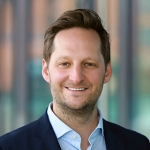Ahead of the 12th National Maritime Conference (NMK) beginning tomorrow in Rostock, the German Shipowners’ Association (VDR) has outlined to its participants the three most important issues from the shipping companies’ point of view: maintaining Germany’s competitiveness as a shipping hub; retaining maritime expertise, especially through training; and promoting liquefied natural gas as a “bridging fuel” on shipping’s path towards a climate-friendly future. “In Rostock, we should set a course for this together,” said VDR President Alfred Hartmann.
Regarding competitive framework conditions, Hartmann added: “With an eye to the fresh start after the pandemic, we are now facing the challenge of securing and shaping the future of Germany’s shipping sector. One of the prerequisites for this will be training the next generation.” The VDR President therefore calls for the measures to promote Germany as a shipping hub to remain in place and for the framework conditions to be further improved, as is happening in neighbouring European countries. “Rather than lying dormant, our immediate neighbours are doing everything in their power to promote their shipping sectors so they can compete on the global level – and we should take that as a model.”
Commenting on the planned prolongation of the measures to promote the training and employment of seafarers in Germany, granting wage tax deductions and non-wage labour cost subsidies, Hartmann said: “We are very grateful to Germany’s federal government and parliament for renewing this programme to support the country’s shipping sector. Together with our efforts via the Stiftung Schifffahrtsstandort Deutschland, we have succeeded in safeguarding training and employment to a large extent despite a severe shipping crisis that has persisted for more than a decade. We must not slacken these efforts.” For this reason, Hartmann continued, the apprenticeship training ratio in shipping will remain at an above-average level. In recent years, an average of roughly 1,200 junior seafarer staff in 75 companies were pre-pared for jobs on board ships in training programmes.
The VDR President also called for liquified natural gas (LNG) to be used as a “bridging fuel” for the time being to assist with climate-protection efforts: “The engines that would make ship-ping carbon-neutral already exist today – the only thing missing is the right fuel. That is why we will still need LNG for now.” However, he added, with ship engines that could use liquefied gas, ushering in the widespread use of alternative, so-called “green” gases on board would be easily possible as soon as they are available in sufficient quantities, as these engines can be converted to use such gases without great effort or expense.
In a related matter, Hartmann clearly rejected calls for the use of internal combustion engines to be ended soon: “Rather than being the problem, the engines are the prerequisite for a successful path to carbon-free shipping. It is the fuels that matter. Whoever calls for the elimination of the internal combustion engine for ships is blocking the path to a carbon-free future.”
In addition to the VDR President, German captain Sebastian Hurst, one of the many seafarers who have been impacted by the coronavirus pandemic in recent months, will also be appearing at the NMK. The captain of a Hapag-Lloyd AG container ship will speak about his experiences at the Shipping Forum on Tuesday. As part of the NMK, the new shore-side electricity supply system in Rostock-Warnemünde will be put into operation as early as Monday with the help of the “AIDAsol” cruise ship operated by VDR member AIDA Cruises.
The NMK, organised by Germany’s Federal Ministry for Economic Affairs and Energy, has existed since 2000 and is usually held every two years to allow members of the maritime industry to gather and interact with politicians. The conference is once again taking place under the patronage of Federal Chancellor Angela Merkel. She and three other federal ministers will speak at the conference, most of which will be held virtually this year.
You can find more information on the NMK and the current programme here (in German only)
About the German Shipowners’ Association
The German Shipowners’ Association (Verband Deutscher Reeder, VDR) is responsible for representing the common business and social policy interests of German shipping companies at federal and state government level as well as in relation to European and international bodies. Founded in 1907, the VDR merged with the Association of German Coastal Shipowners in 1994. With a membership of around 220, the VDR represents the majority of Germany’s merchant fleet. For more details, visit www.reederverband.de.





